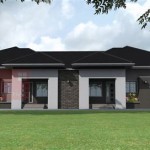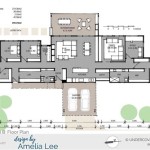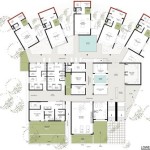Passive Solar Rammed Earth House Plans: Fundamental Design Principles
Embracing sustainable living, passive solar rammed earth houses harness natural resources to create energy-efficient and thermally comfortable homes. Here are the essential aspects to consider when designing a passive solar rammed earth house:
## Orientation and Siting:Optimizing solar exposure is crucial. Position the house facing south (northern hemisphere) or north (southern hemisphere) to maximize sunlight gain during the winter months. Place windows, doors, and thermal mass elements on the south-facing side, allowing for passive solar heating.
## Thermal Mass and Insulation:Rammed earth, a dense and thermally massive material, has excellent thermal storage properties. Utilize it as a thermal sink that absorbs heat during the day and releases it gradually at night. Combine it with insulation materials like straw bales, cellulose, or sheep's wool to minimize heat loss.
## Windows and Skylights:Strategically place large windows on the south side to capture winter sunlight. Use overhangs or external shading devices to prevent overheating during the summer. Consider installing skylights to allow for natural daylighting and solar heat gain.
## Ventilation and Airflow:Natural ventilation is essential for thermal comfort. Design cross-ventilation systems that allow air to flow through the house, removing excess heat and moisture. Utilize clerestory windows or roof vents to extract warm air.
## Thermal Zoning:Divide the house into thermal zones, separating living spaces from utility rooms or garages. This allows for targeted heating or cooling, reducing energy consumption.
## Landscaping:Use trees, shrubs, and vegetation to provide shade during the summer and protect from cold winds in the winter. Consider planting deciduous trees on the south side to maximize winter sunlight while providing shade in the summer.
## Sustainability and Durability:Rammed earth construction is inherently sustainable, using local materials with minimal environmental impact. It provides exceptional durability, withstanding harsh weather conditions and maintaining structural integrity for centuries.
## Design Considerations:In addition to the functional aspects, consider aesthetic design elements such as curved walls, vaulted ceilings, and natural textures. Rammed earth's unique architectural qualities offer a striking and organic aesthetic that blends seamlessly with its surroundings.
## Professional Design Assistance:Creating a passive solar rammed earth house requires careful planning and expertise. Consult with architects and engineers specializing in passive solar design and rammed earth construction. Their knowledge will ensure optimal performance and long-term durability.

Rammed Earth House Plans Home Plan 1342

Rammed Earth Solar House Plan 1680 Affordable Plans

Our Passive Solar House Plans Version 2 Byexample Com

Earth Sheltered Passive Home Plan

A Rammed Earth Extension To N Bungalow Architecture Design

Rammed Earth Creating A 500 Year House Fine Homebuilding

Earth Sheltered Passive Home Plan

A Simple Design Methodology For Passive Solar Houses

Rammed Earth Passive Home Calgary Engineering Design Fair 2024

Rammed Earth Developments Homes House Plans And More








